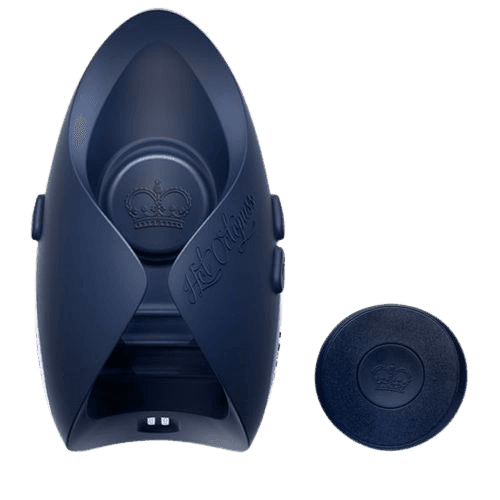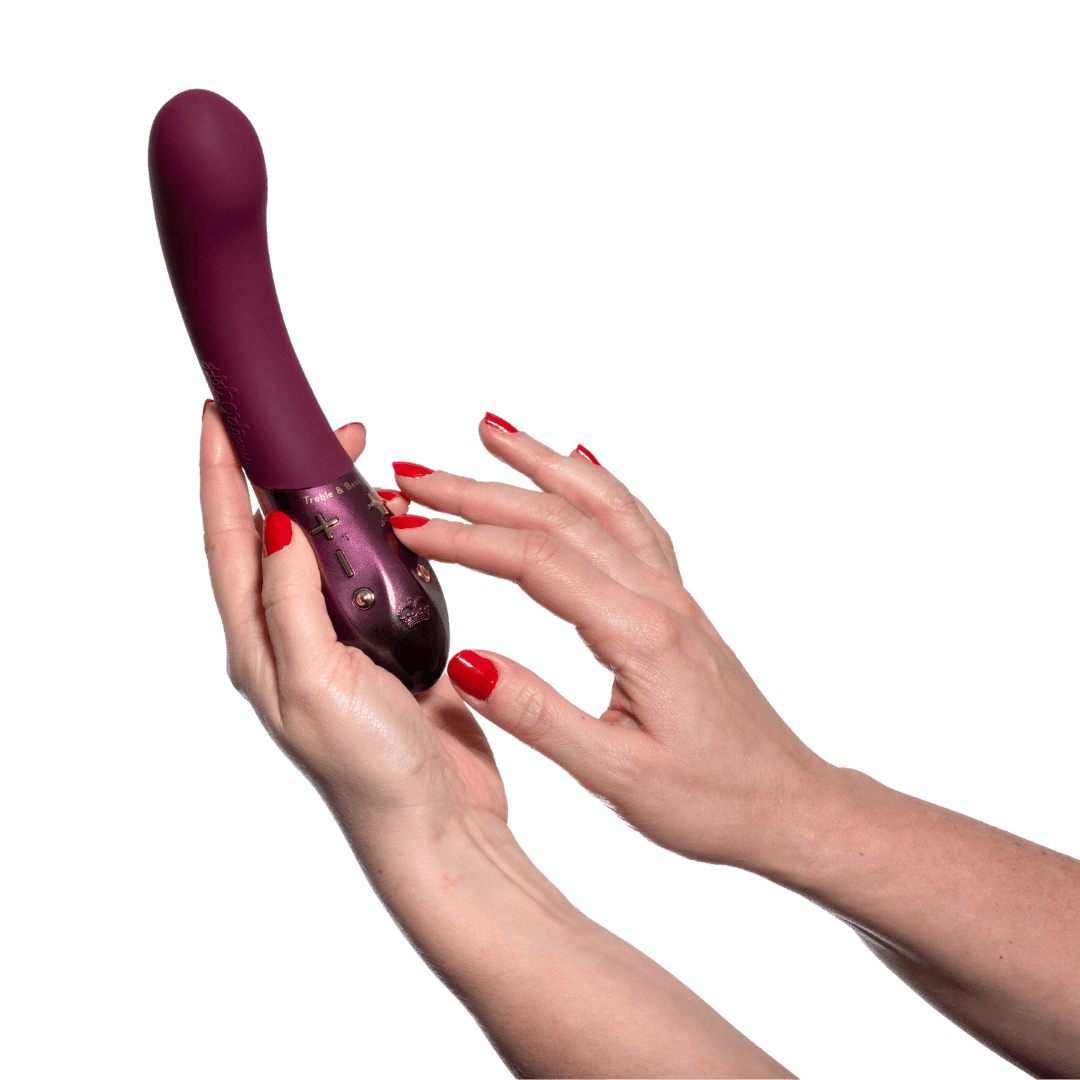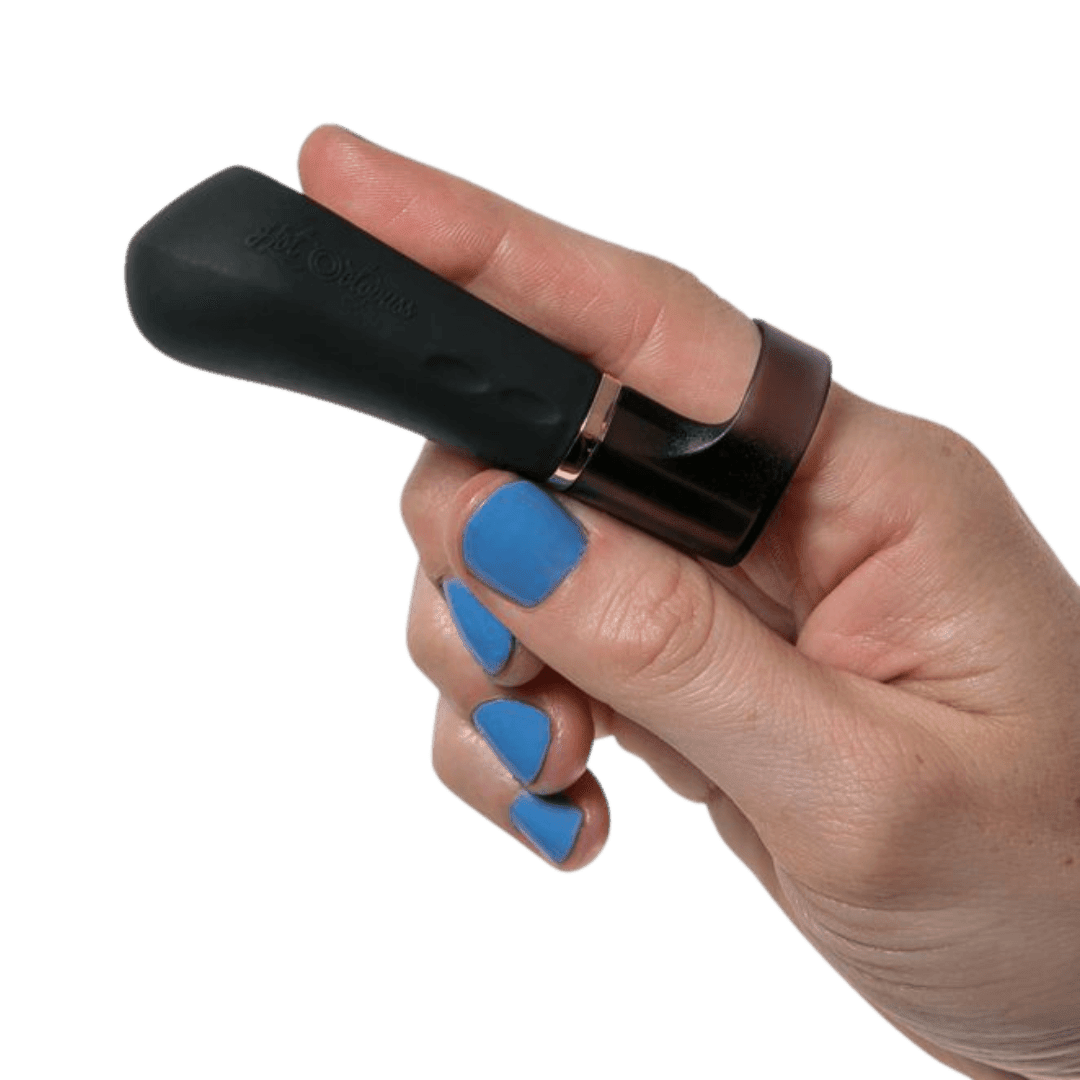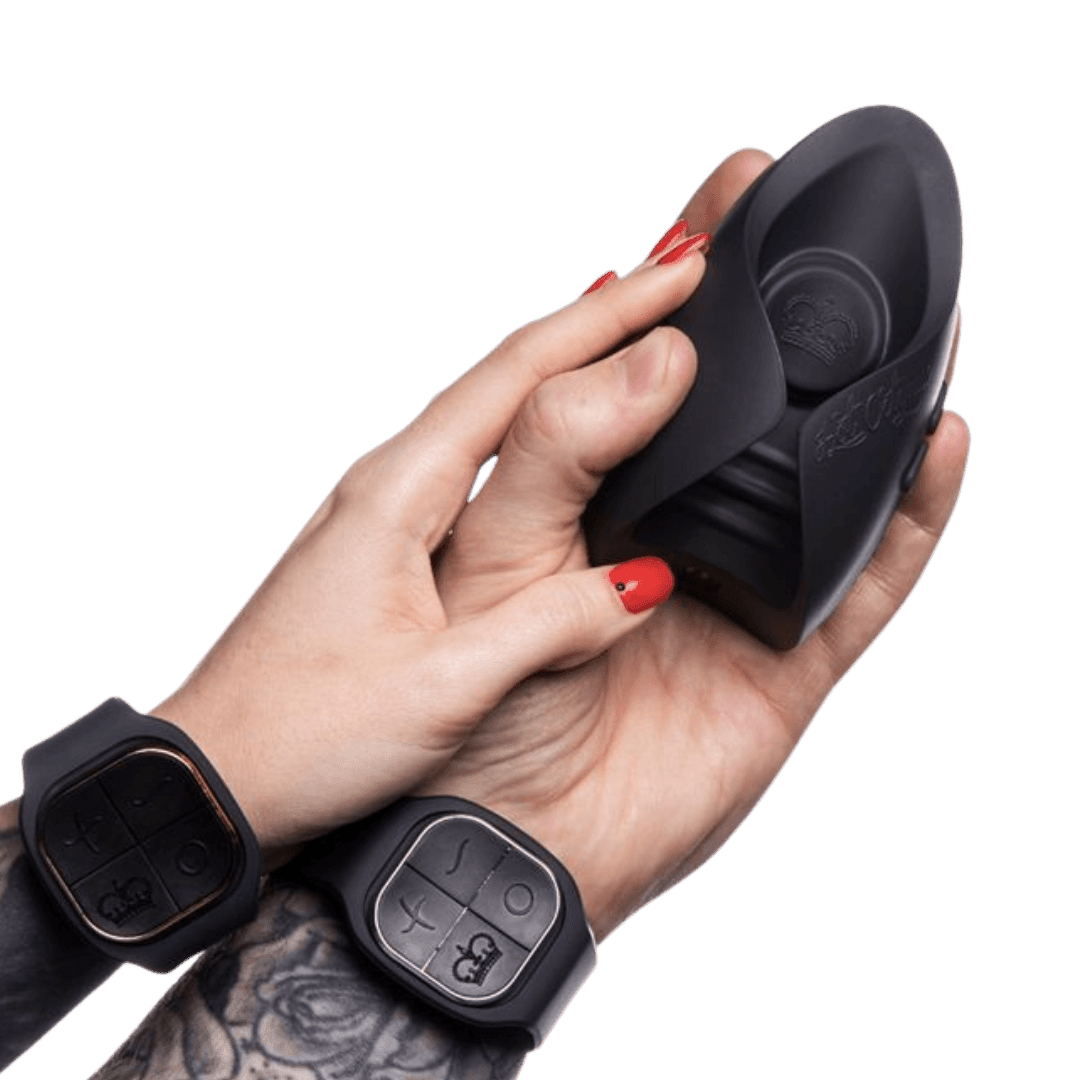Chronic Pain And Sex – Solutions For A Blissful Love Life
20 September 2021
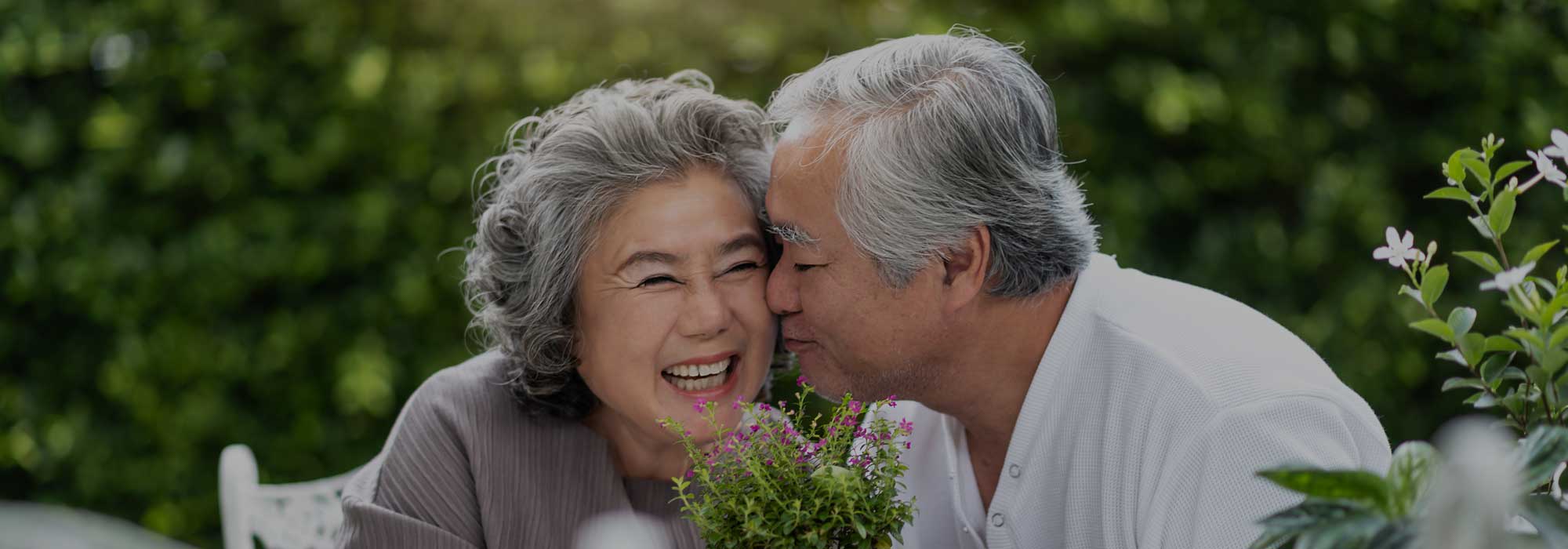

Ever have a moment like this?
It’s your date night. You’ve been looking forward to it all week. You’re finished with work. Finally. Your sweetheart is arriving in about an hour. You’ve had your outfit all ready for days, down to the sexy underwear. Music is on, wine is chilled, condoms are set, and your sex toys are all charged up and organized. Everything’s ready to go.
Only problem…you. You’re just not there. Your head is pounding, joints are aching, limbs are starting to go numb again. And you’re just plain exhausted by it all. “It’s just not fair!” you scream into the bathroom mirror as you reach for your pain pills and pull out your cell to tell your boo not to bother coming over.
But wait. There’s another reality here. Yes, the pain is still a pain, the aches are still aching and your limbs are still numbing. But maybe, just maybe, you can salvage at least part of this lovely plan. It’s going to take a little doing. But who’s not into a little doing when it comes to a little sexy time?
Doctors don’t always have the answers
If you’re one of the millions of people who live with chronic pain and you want to still have access to your sexual life, you may start off by going to see your doctor. But if your doctor seems uncomfortable with the topic of sex, remember: most health care providers don’t get much training in sexual medicine. Research shows they also have little knowledge of the intersection of chronic illness and sexuality. And it can make us feel a bit of shame or embarrassment when we have to ask. Talk to a sexuality professional who has experience in chronic pain, chronic illness, and disabilities.
People with chronic illness are still having sex
Complicated by ageism, ableism, and a “dys-function” narrative, most of us struggle to find a sex-positive framework when we live with chronic pain or illness. In spite of it all, many older adults believe sexual wellness is integral to their quality of life. Remember that it’s your body and for many people living with a lifelong illness, sex is an important part of life. I’m going to give you four sex tips that can turn disasters into triumphs.
Accessible Sex Tip #1: Don’t give up
If tonight (or tomorrow night) is not going to work for you to have sex with your boo, don’t despair. Start talking (or texting or DMing or communicating in any way you can) with your favorite sex partner because Sex is more than touching. Go slowly and take care not to apologize, as you have nothing to be sorry for. Begin by expressing your desire and your needs and what you’d like to do with them. Make the conversation mean something by facing each other and holding hands if you can. Physical contact can help lower your anxiety. And remember, communication is the key to lasting sexual relationships.
Accessible Sex Tip #2: Lean into your resources
Fortunately, we are living in a moment where the possibilities for accessibility are expanding exponentially. For those of us with chronic pain or illness, I’m asking you to get creative and trust that there’s a way to make sex work for your unique and wonderful body. Dr. Lee Phillips, an AASECT certified sex therapist, recommends curiosity about your partner when you start getting creative with your sexual experiences. Dr. Lee’s mission in life is to crush the myth that people with chronic illness and other disabilities are not sexual. Furthermore, his podcast, Sex & Chronic Illness, part of the Invisible Not Broken network, features stories from individuals, couples, and other experts in the field on overcoming shame and the sexual limitations caused by illness and disability.
Accessible Sex Tip #3: Try out new ideas and new toys
Instead of thinking it’s all over, consider this as a new sexual adventure. Fortunately, Hot Octopuss has a whole set of accessible toys and helpful tips. Disability Lead, Kelly Gordon, and her team at Hot Octopuss are working with other sex-positive disability rights folks to find more avenues to more pleasure. Together they’re trailblazing solutions for mobility and dexterity issues, such as sex wedges and straps that help with positioning so you can focus more on the pleasure. In addition, they consult on the development of more accessible sex toys, such as those with ergonomic handles and bigger buttons. The PULSE takes the pressure off penetration if erections are not working for you while The DiGiT finger vibrator literally expands your reach and gives your hands a rest.
Accessible Sex Tip #4: Enjoy where you are.
Take the pressure off the “perfect” moment. We are mortals here and we need time to create what sex researchers call good-enough sex, as a kind of reality check. If tonight isn’t the night, maybe you can find your way to another moment that works. Talk about what you might like to do when your body is ready to be touched again. And get to know your body, your partner’s body, and get creative with each other.
In Conclusion
Sex can ease discomfort. Sexual stimulation can alleviate chronic pain. Stimulation resulting in orgasm produces the greatest increase in pain relief. Researchers have found that sexual arousal and orgasm increase levels of endorphins and other hormones like oxytocin (an extraordinary neurotransmitter, often referred to as the “cuddle hormone”) that can ease discomforts of chronic pain and improve quality of life.
Next time you’re having a moment where you feel overwhelmed by your chronic pain or illness, remember that people with many types of chronic pain — even those with spinal cord injuries – have found many ways to reintegrate sex into their lives. When you’re not feeling sexy, use that time to reconnect with what still feels good in your body, go there, and then find a connection with yourself and maybe even your partner. Find your sensuality even when you can’t find your sexiness. Let them know this might be the night for a good head massage. Or a long cuddle on the couch. The connection you feel may lead to a renewed closeness to yourself and your future pleasure.
About The Author
Jane Fleishman, PhD, MEd, MS, is a writer, an award-winning educator, sexuality researcher, and AASECT Certified Sexuality Educator. She earned her M.Ed. and Ph.D. at Widener University Center for Human Sexuality Studies. Her curious nature led to her to study sexual satisfaction later in life and to her latest accomplishment, The Stonewall Generation: LGBTQ Elders on Sex, Activism, and Aging. She co-hosts a regular podcast on sex in the second half of life and recently completed a popular TEDx talk, Is It OK for Grandma to Have Sex? She is a proud mother of two really fabulous 20-somethings (and not yet a grandmother).
References
Davis, D., Shaver, P. R., Widaman, K. F., Vernon, M. L., Follette, W. C., & Beitz, K. (2006). “I can’t get no satisfaction”: Insecure attachment, inhibited sexual communication, and sexual satisfaction. Personal Relationships, 13, 465-483. https://doi.org/10.1111/j.1475-6811.2006.00130.x
Komisaruk, B. R., & Whipple, B. (1998). Love as sensory stimulation: Physiological consequences of its deprivation and expression. Psychoneuroendocrinology, 23(8), 927-944. https://doi.org/10.1016/S0306-4530(98)00062-6
McGrath, M., Low, M. A., Power, E., McCluskey, A., & Lever, S. (2020). Addressing sexuality among people living with chronic disease and disability: A systematic mixed methods review of knowledge, attitudes and practices of healthcare professionals. Archives of Physical Medicine and Rehabilitation. https://doi.org/10.1016/j.apmr.2020.09.379
Metz, M. E., & McCarthy, B. W. (2007). The “Good-Enough Sex” model for couple sexual satisfaction. Sexual and Relationship Therapy, 22(3), 351-362.
Ogden, G. (2007). Women who love sex: Ordinary women describe their paths to pleasure, intimacy, and ecstasy. Shambhala Publications.
Richards, E., Tepper, M., Whipple, B., & Komisaruk, B. R. (1997). Women with complete spinal cord injury: A phenomenological study of sexuality and relationship experiences. Sexuality and disability, 15(4), 271-283.
Syme, M. L., Cohn, T. J., Stoffregen, S., Kaempfe, H., & Schippers, D. (2019). “At my age…”: defining sexual wellness in mid-and later life. The Journal of Sex Research, 56(7), 832-842. https://doi.org/10.1080/00224499.2018.1456510




